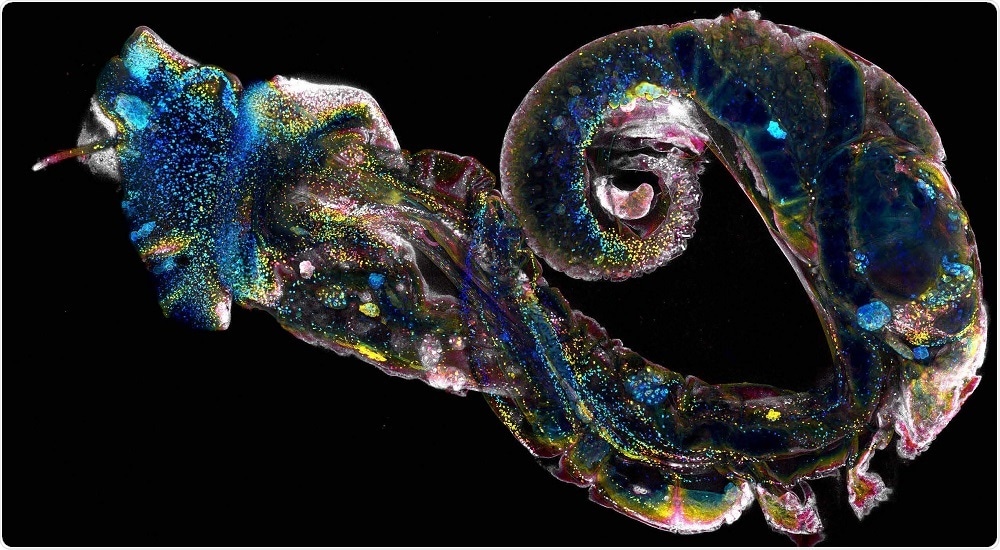Scientists from the Morgridge Institute for Research have made an important discovery that could lead to the development of new treatments for schistosomiasis, a common parasitic disease.
 A snail infected with schistosomiasis. (Image Credit: Bo Wang / Stanford University)
A snail infected with schistosomiasis. (Image Credit: Bo Wang / Stanford University)
Schistosomiasis currently affects more than 250 million people, mainly in Asia and Africa, and the WHO has estimated that it causes approximately 280,000 deaths per year.
Currently, the only treatment used to combat schistosomiasis is effective at killing adult worms, but not effective at killing the parasite during other stages of its life cycle.
Now, professor Phillip Newmark and colleagues have characterized certain stem cells that control the parasite’s life cycle and identified a gene linked to the earliest developmental stage of the germline.
Understanding how these stem cells drive the development of each life-cycle stage may ultimately help prevent disease transmission."
Phillip Newmark
The life cycle of this parasite begins in ponds and lakes where its eggs hatch from human waste into small organisms that infect a particular type of snail.
In the snail, the parasite produces fork-tailed swimming organisms called cercariae that are released into the water where they are then able to penetrate human skin and cause infection.
Now, a colleague of Newmark’s, Jayhun Lee, has designed an experiment that mimics the infection stage in culture by enabling the cercariae to burrow through a piece of mouse skin.
As reported in the journal eLife, the team observed the proliferation of five distinct stem cells that initiate the parasite’s development into the adult worm.
They then identified a subset of stem cells that are linked to the development of the parasite’s reproductive system.
We're really excited about this because it opens up a number of important research directions. The drug used to fight schistosomes does not work on this stage of infection. Understanding what's happening in this early period after infection is critical, because it's also a time when the parasites should be most vulnerable."
Phillip Newmark
Next, the researchers plan to observe the five stem cells as they differentiate and develop into tissues. They hope this will help them find out what the cells are doing and potentially provide answers to this human health tragedy.